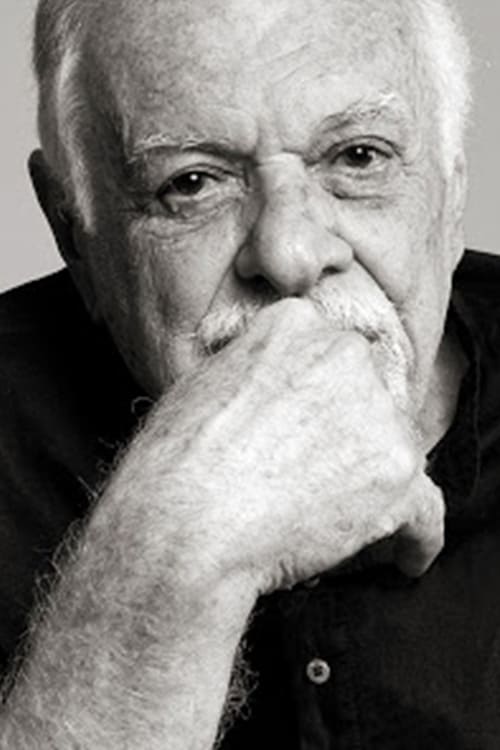
Sérgio Ricardo
Nacimiento : 1932-06-18, Marília, São Paulo, Brazil
Muerte : 2020-07-23
Historia
João Lutfi (18 June 1932 – 23 July 2020), known professionally as Sérgio Ricardo, was a Brazilian actor, musician, playwright and filmmaker, better known for being responsible for the soundtrack of Glauber Rocha's "Deus e o Diabo na Terra do Sol" ("Black God, White Devil").
Born in a Lebanese-Brazilian family in Marília, São Paulo, and brother to famed director of photography Dib Lutfi, João got his stage name from TV businessmen who wanted to rebrand him as a leading man with an iconic name during his early gigs as an actor. He's maily associated with the Cinema Novo (Brazilian New Wave) movement, but stayed active until 2018.
During the Cinema Novo days, Ricardo directed short film "Menino da Calça Branca" (1961) and "Esse Mundo É Meu" (1963), his feature-length debut. Among other notorious works in his career as a filmmaker is "A Noite do Espantalho", which shows Ricardo's talent as a polymath by mixing filmmaking with folk music and other elements of Brazilian popular culture, such as "cordel" literature.
Ricardo moved to the Vidigal slum, in Rio de Janeiro, by choice in the 1970s, where he lived until his death in 2020. "Bandeira de Retalhos" (2018), his last film, was adapted by a theatre play also written by him and chronicles the life in 1970s Vidigal.

It is a realistic musical documentary, mixing the old and the new, exchanging chronological positions, creating a suggestive carousel for the audience. A tribute to Sérgio Ricardo's cinematographic work narrated through the assembly of scenes and tracks taken from the 7 films he directed. In this anthology, the most recurrent theme in the author's work is portrayed: the struggle of the oppressed worker who finds love, music and the community his escape valve.

Original Music Composer
Vidigal Hill, 1977. A runaway group of bandits engage in a complex love triangle in the brink of the news that the corrupt Rio de Janeiro mayor decided to make everyone move out of Vidigal, aided by police forces.

Screenplay
Vidigal Hill, 1977. A runaway group of bandits engage in a complex love triangle in the brink of the news that the corrupt Rio de Janeiro mayor decided to make everyone move out of Vidigal, aided by police forces.

Director
Vidigal Hill, 1977. A runaway group of bandits engage in a complex love triangle in the brink of the news that the corrupt Rio de Janeiro mayor decided to make everyone move out of Vidigal, aided by police forces.
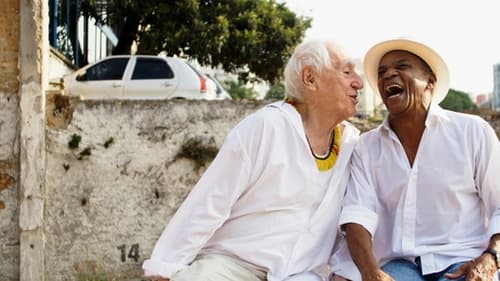
Self
This documentary investigates the aesthetic, political and existential trajectory of emblematic Black Brazilian actor Antônio Pitanga. He career spans over five decades, and he has worked with iconic Brazilian filmmakers Glauber Rocha, Cacá Diegues and Walter Lima Jr. He was a prominent figurehead and outspoken activist during the Brazilian dictatorship, a period of unrest in Brazilian cinema. Pitanga deep dives into the world of Antônio and the history of Brazil. The documentary was directed by his daughter Camila Pitanga, one of widely recognised faces in Brazilian television and cinema right now. The film is also a poem, and a tender ode to fatherhood.

Screenplay
Vidigal, Rio de Janeiro. A woman is left desperate and hopeless after she is evicted from her house with her disabled son.

Original Music Composer
Vidigal, Rio de Janeiro. A woman is left desperate and hopeless after she is evicted from her house with her disabled son.

Vidigal, Rio de Janeiro. A woman is left desperate and hopeless after she is evicted from her house with her disabled son.

Director
Vidigal, Rio de Janeiro. A woman is left desperate and hopeless after she is evicted from her house with her disabled son.

Ele mesmo
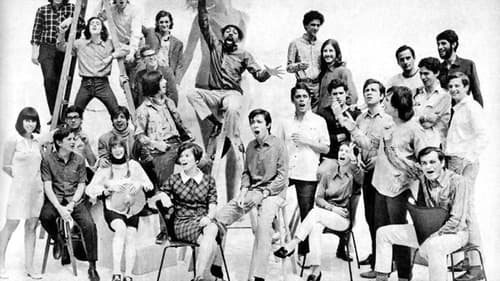
Self
If you thought TV shows in which audiences and juries judge musical acts were a relatively new phenomenon, you'd better think again. In the 1970s, such "festivals" were incredibly popular in Brazil. They were recorded before a live studio audience, and usually featured a number of elimination rounds. They also formed the springboard for the career of many a big-name star, such as Chico Buarque, Caetano Veloso, Roberto Carlos and Gilberto Gil. Appearing on such a program was no cakewalk, however: audiences could be as wild in their condemnation as in their appreciation of an artist. Extensive archive footage (including performances and behind-the-scenes interviews) from a turbulent final of the Festival of Brazilian Popular Music one evening in 1967 paints a fascinating picture, not only of the transformation of Brazilian music into real "festival" music, but also of a society starting to buck against the yoke of military rule.

Documentary on "Antonio das Mortes", Glauber Rocha's 1969 film.

The documentary "Depois do Transe" covers the entire process of creating the masterpiece "Entranced Earth", which was released and awarded at the Cannes Film Festival in 1967. "Entranced Earth" charmed the world and won great admirers such as filmmaker Martim Scorsese and the writer Marguerite Duras, who at the time considered a "fabulous filmic opera."

Ele mesmo

Self
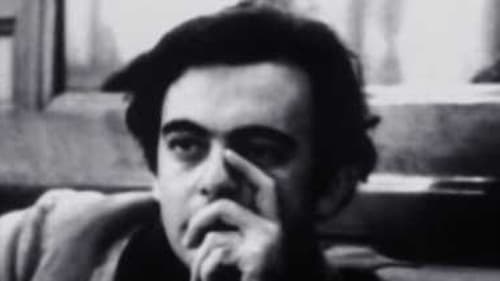
Documentary about Brazilian filmmaker Glauber Rocha, one of the most important names in the Cinema Novo, with interviews with some of his friends and colleagues.

Sérgio Ricardo's only animation film, a short made as a companion piece to his song "Zelão".

Music
Sérgio Ricardo's only animation film, a short made as a companion piece to his song "Zelão".

Writer
Sérgio Ricardo's only animation film, a short made as a companion piece to his song "Zelão".

Director
Sérgio Ricardo's only animation film, a short made as a companion piece to his song "Zelão".

Music

Carioca (voz cantando)
Poor people who live in the slums in Rio de Janeiro decide to occupy an empty apartment building in the rich part of the city. Meanwhile, a rich girl falls in love with a poor composer. Based on the musical play "Pobre Menina Rica", by Vinícius de Moraes and Carlos Lyra.

A wealthy French promoter based in Rio tries to seduce Alexandra, a young woman of high society, but trapped in her strict education.

Music
A wealthy French promoter based in Rio tries to seduce Alexandra, a young woman of high society, but trapped in her strict education.

Story
In the miserable Northeastern Brazil, a ruthless land Baron wants to throw a poor farming community out of their land.

Screenplay
In the miserable Northeastern Brazil, a ruthless land Baron wants to throw a poor farming community out of their land.

Director
In the miserable Northeastern Brazil, a ruthless land Baron wants to throw a poor farming community out of their land.

Original Music Composer
In the miserable Northeastern Brazil, a ruthless land Baron wants to throw a poor farming community out of their land.

Original Music Composer

Self

Music
In 1913, in the state of Santa Catarina, Brazil, the Government gives some lands to a foreign railway company, giving rise to revolt by the former owners of the land. The episode became known as Guerra dos Pelados.

Original Music Composer
A beautiful young woman living in an isolated fishing community on an island falls in love with an outsider, a train machinist. But her father, a violent religious fanatic interferes.

Screenplay
A beautiful young woman living in an isolated fishing community on an island falls in love with an outsider, a train machinist. But her father, a violent religious fanatic interferes.

Director
A beautiful young woman living in an isolated fishing community on an island falls in love with an outsider, a train machinist. But her father, a violent religious fanatic interferes.

Music
A Brazilian crime film

Music
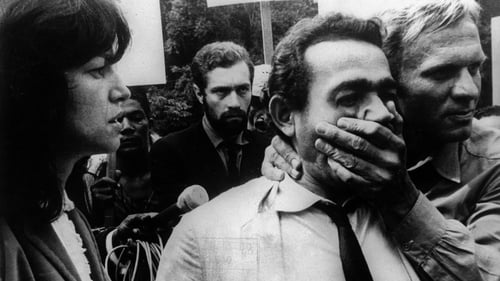
Original Music Composer
Eldorado es un país ficticio latinoamericano donde vive el idealista, poeta anarquista y periodista Paulo Martins. Dos políticos, el populista Felipe Vieira y el conservador Porfirio Díaz, luchan por el poder en esta compleja realidad tropical donde nada es lo que parece.
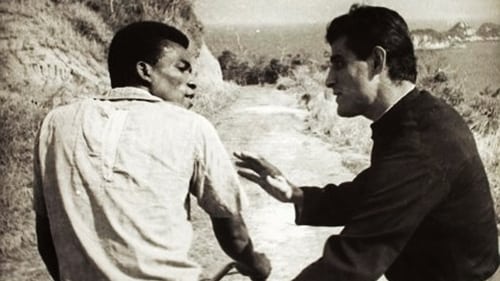
Producer
The film follows two men living in a Rio de Janeiro slum: a black shoe-shiner and a white mill worker.

Screenplay
The film follows two men living in a Rio de Janeiro slum: a black shoe-shiner and a white mill worker.

Music
The film follows two men living in a Rio de Janeiro slum: a black shoe-shiner and a white mill worker.

Director
The film follows two men living in a Rio de Janeiro slum: a black shoe-shiner and a white mill worker.

Pedro
The film follows two men living in a Rio de Janeiro slum: a black shoe-shiner and a white mill worker.
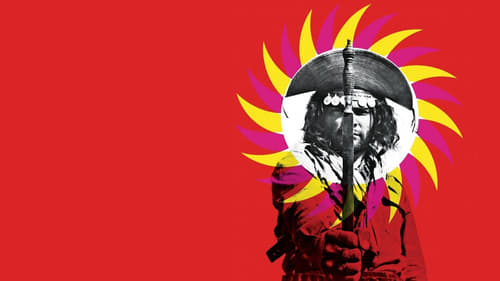
Music
Dios y el diablo en la tierra del sol (Deus e o diabo na terra do Sol), el segundo largometraje de Rocha, pertenece a este movimiento renovador del cine brasilero que influirá por años en otros autores latinoamericanos. Inspirado en la "Estética de la violencia", apela al signo que, según Rocha, caracteriza a su pueblo, el hambre, que a la vez es su originalidad, pues el hambre convoca a una violencia transformadora que se convierte en acto revolucionario, donde el colonizador llega a tomar conciencia de la existencia del colonizado.

It tells the story of a girl being abducted by the evil pirate with a wooden leg.

Original Music Composer

Writer

Director

Petrônio drives a bus and his friend Cabeleira is a ticket collector. When Petrônio's sister needs money to do a surgery they get involved with a film production company, where a psychopath is trying to be the protagonist of the movie.









